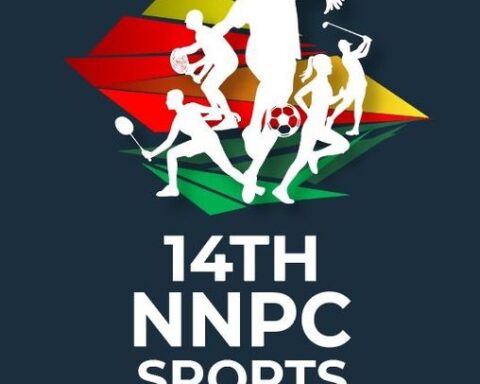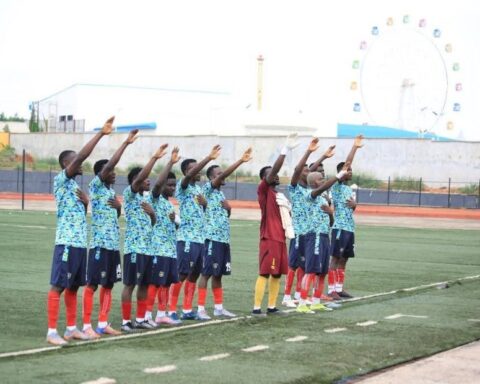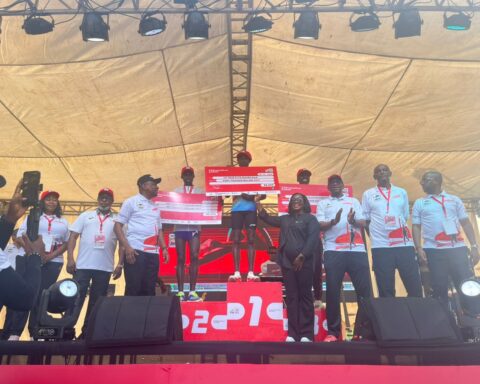By Maxwell Kumoye
FIFA President Gianni Infantino has revealed that more than USD 1 billion has been invested in African football through the FIFA Forward Programme since its launch in 2016.
Speaking at the 47th CAF Ordinary General Assembly held in Kinshasa, Democratic Republic of Congo, Infantino said the investment underscored FIFA’s commitment to developing football across the continent.
He also emphasized the sport’s power to inspire hope and dreams among Africa’s youth, addressing representatives from all 54 African Member Associations (MAs).
“We all have the responsibility and the duty to give dreams, chances, and hope to the children of Africa,” Infantino said. “To be united, to continue to unite African football, because like this we will have a strong voice and a very bright future.”
RECORD INVESTMENT IN DEVELOPMENT
According to Infantino, total FIFA Forward investments in Africa have reached USD 1.06 billion between 2016 and September 2025, spanning the Confederation of African Football (CAF), regional associations, and the continent’s national federations.
The figure is projected to rise to USD 1.28 billion by the end of the current four-year cycle in 2026 — including USD 1.08 billion allocated directly to the 54 African MAs for infrastructure, competitions, and operational costs.
AFRICAN CLUBS SHINE ON GLOBAL STAGE
CAF President Patrice Motsepe expressed appreciation to FIFA for expanding opportunities for African clubs and national teams.
He specifically thanked the FIFA President for staging the FIFA Club World Cup 2025, where four African giants — Al Ahly FC, Espérance Sportive de Tunis, Mamelodi Sundowns FC, and Wydad AC — represented the continent.
“Those four clubs did very well, and we’re confident that next time they’ll do even better,” Motsepe said. “Thank you, Gianni, for the huge sacrifices and your support.”
Infantino highlighted that players from 19 African nations took part in the Club World Cup, including nine countries that have never featured at the FIFA World Cup — Burkina Faso, Congo, Gabon, Guinea, Mali, Mozambique, Namibia, Tanzania, and Uganda.
“It was a huge success this summer,” he added. “Four African teams, and even more important, African representation among the 32 clubs from around the world.”
EXPANDING GLOBAL OPPORTUNITIES
FIFA’s development efforts are not limited to funding. The organization has also expanded competition access for African teams. A record nine or ten African nations will feature at the FIFA World Cup 2026™, while 10 teams will compete at the FIFA U-17 World Cup Qatar 2025™, and five nations will play in the FIFA U-17 Women’s World Cup 2025™ hosted in Morocco.
FIFA also plans to open 20 to 30 FIFA Academies across Africa by 2027 under the Talent Development Scheme (TDS), helping nations identify and nurture young talent. In addition, the Football for Schools Programme — designed to integrate football into education — is now active in over 40 African countries.
UNITING FOR THE FUTURE
In closing, Infantino paid tribute to African football legends Samuel Eto’o, Emmanuel Adebayor, El Hadji Diouf, and Kalusha Bwalya, describing them as inspirations for the next generation.
“We would all love to become legends like Eto’o or Adebayor, but not all of us have that talent. What we do have is the duty to work hard and create opportunities for the next generation,” he said.
The FIFA President urged unity across the continent, stressing that Africa’s collective strength will define its future success in world football.


























